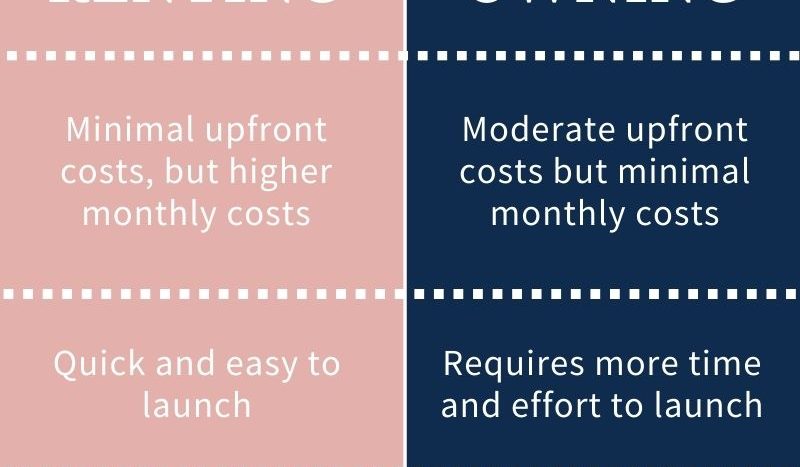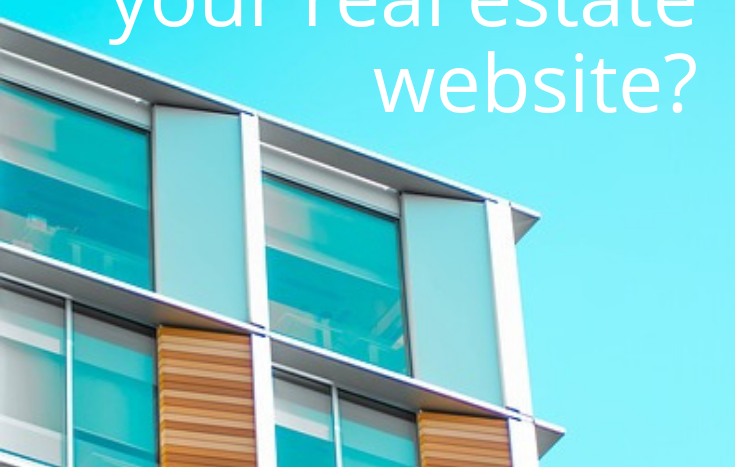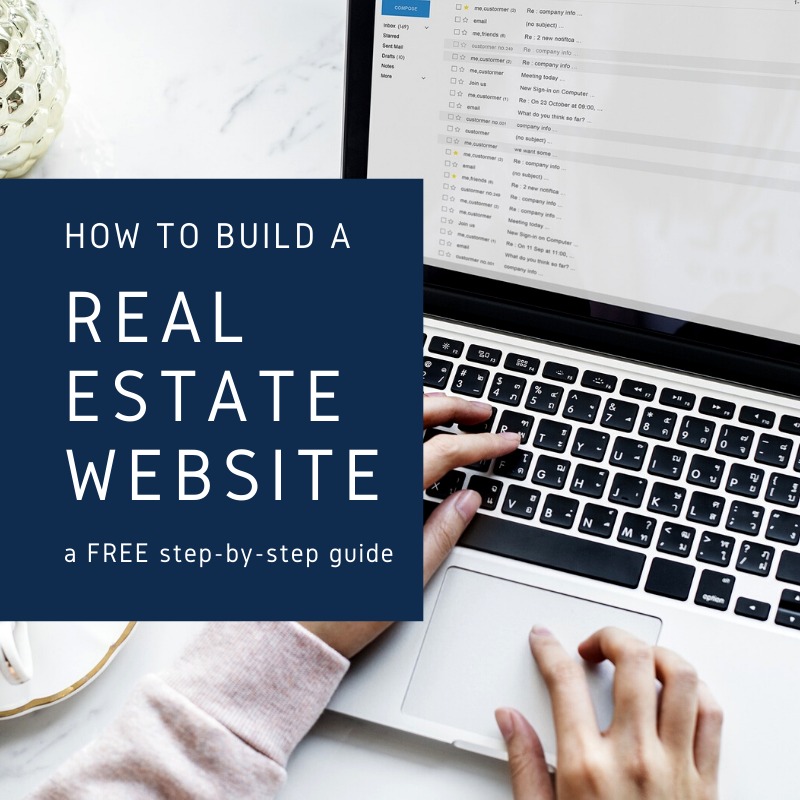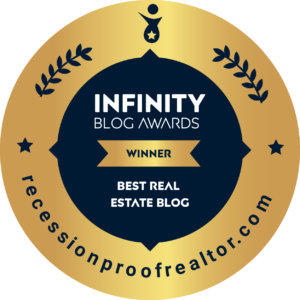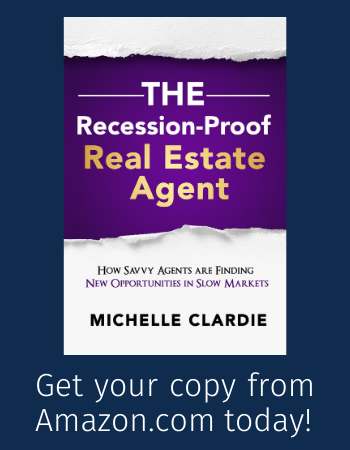As a real estate agent, you know the benefits of owning vs. renting. But do you apply that same logic to your website? Are you just renting your real estate website?
Many agents I work with are surprised to learn that they don’t actually own their websites. Or maybe they own part of the site (like the blog content), but not the whole site.
And we’re not talking about that one-page bio on your broker’s website. That’s not a website. That’s just a web page that doesn’t provide any of the benefits of having your own website.
No, we’re talking today about your professional website. Your online hub. The site you pay for. Did you know that site might not belong to you?
In this post, we’ll talk about:
- How to know for sure if you own or rent your real estate website
- The Pros and Cons of renting your real estate website
- Alternatives to renting your real estate website
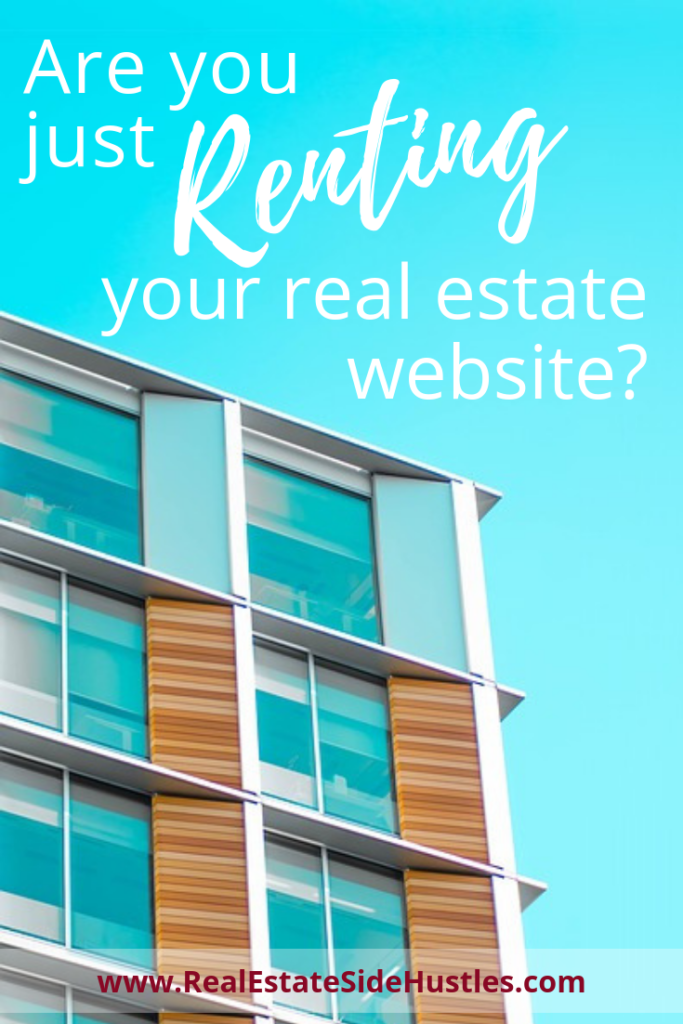
How to Know if You are Renting Your Real Estate Website
Need help determining whether you own or rent your real estate website? It’s not always easy to tell. Some website providers use difficult language to explain ownership rights, so it’s not always immediately clear whether you’re renting or owning.
Here are some questions to help you uncover the answer.
- Is your website provided by Real Estate Webmasters, BoomTown, Dakno, or Easy Agent Pro? If so, you are just renting.
- Are you free to switch web hosts at will (moving from GoDaddy to Bluehost, for example), taking all your content and web page templates with you? If so, you own your site.
- Are you free to have a web developer make changes to the code on your site to make changes as you see fit? If so, you own your site.
When in doubt, you can always call your website provider and ask these questions to get a direct answer.
The Pros of Renting Your Real Estate Website
As a real estate pro, you know that owning is generally better than renting. But there are certain benefits to renting. And ownership may not be for everyone. The same is true when it comes to owning vs. renting your real estate website.
So let’s discuss the pros of renting your website.
1. Minimal upfront investment
The cost of your website is typically spread out via a monthly fee instead of an upfront cost. This helps with cash flow, which is a big help to agents who need a site but don’t have the money available to pay upfront. Upfront costs for owning your site can be anywhere from $250-ish for a DIY (but still professional!) site to $10,000 for a robust completely custom site. But you can rent a website for less than $50/month.
Word of warning about this low initial investment: the monthly costs don’t go away once your site provider has effectively covered the cost of the site. If you choose to rent a site for $50/month instead of building your own site for $250, you’ll be losing money on your rental after just 5 months.
2. Easy to launch
Rented websites are quick and easy to launch. Your website provider just needs some basic information, and you can have a boilerplate site up and running in about 10 minutes.
Creating a website you own, on the other hand, requires more of a time investment because you’ll be creating a more unique website. But this doesn’t have to be as time-consuming as you’d expect. Check out How to Build a Real Estate Website for a FREE step-by-step guide to save you tons of time!
3. You could benefit from proprietary technology
Proprietary technology is a key benefit of renting your real estate website.
Some high-tech website providers offer can’t-get-anywhere-else technology like automatic email drips to your email list, automatic text messages to incoming leads, and even live chat features.
If your business relies on some of the tech your current site provider includes in the cost of renting your site, you may want to stick with renting.

The Cons of Renting Your Real Estate Website
Now, let’s go over the cons of renting your real estate website.
1. You have less control over your brand.
Most of the rented real estate websites offer a limited number of customization options. So your site may end up looking nearly identical to your competitors’ sites.
To have 100% control over the look and feel of your site (so it can match your branding and be immediately identifiable in your market), it’s better to own your site. When you own your site, you can customize every detail (most details are easy to customize on your own, but you can literally change anything and everything with the help of a programmer).
2. You’ll likely be locked into a contract.
Website providers need to be able to charge monthly fees for a certain number of months to recoup the investment they make in creating your site. So they’ll usually lock you into a 12-36 month contract. And this contract is enforceable even if you leave real estate. One of my clients decided to make the change from real estate sales to residential apartment management, and she had to continue paying $100/month for a site she wasn’t using. This went on for over 6 months.
3. You can easily end up paying more than necessary.
As mentioned previously, you’ll pay monthly for your rented site long after the website provider has recouped its initial investment in creating your site. If you’re renting, you’re lining their pockets every month. And what happens when your contract period expires and your rates increase for the next period?
4. If you leave your provider, you could lose all your traffic.
It takes time to build up your Google ranking for your website, and switching providers could mean losing all that hard work. Google may start you back at square one with your new provider.
If you think you may make the switch from renting to owning, it’s probably best to do it sooner rather than later to minimize your online presence losses.
5. If your provider goes out of business, you could lose everything.
Website providers aren’t invincible. Some fail. And if your provider goes out of business, you could lose everything from that rented space.
The Alternatives to Renting Your Real Estate Website
If you want to own your real estate website, you have a few options: hire a website designer to build you a website, build your own website, or try a website provider that allows you to retain ownership over your website.
Hire a website designer
Hiring a website designer can mean paying $200 to a college kid to create a semi-custom WordPress website for you. Or paying a professional website design firm thousands to build you a custom. Or anything in between.
I actually offer inexpensive semi-custom websites for agents as a fun side business. I enjoy creating these websites. And it makes me happy to help agents who want a professional site, but don’t have the money to hire a full-timer. Check out my affordable rates.
Build your own website
Building your own website might sound terrifying. But with all the tools currently available, it’s easier than ever for the technically-challenged to DIY their websites. As I mentioned, you can DIY your site for around $250 (which includes 3 years of web hosting!). Make sure you check out How to Build a Real Estate Website for a totally free guide.
Use a provider that allows you to own your site
It’s worth noting that some real estate website providers allow you to own your site instead of just renting it. You still pay the monthly fees, but you get to retain ownership over the content on your site and the templates used. So you can move your site at any time with minimal interruption.
If that sounds like a good compromise to you, try Agent Image. They are one of the few trusted real estate website providers in the industry that allow agents to retain full ownership.
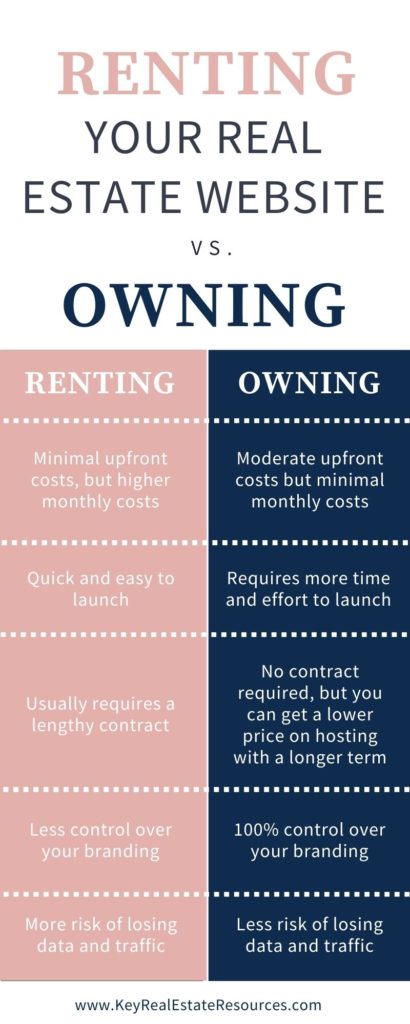
The Bottom Line
Your real estate website is an investment. If you’re looking long-term, owning your real estate website provides greater benefits and fewer negatives.
But renting your real estate website has its benefits as well. Only you can decide which is the best path for you.
Feel Like Sharing?
Have you decided to own or rent your real estate website? What were your deciding factors? Let us know in the comments!
Need Some Help?
If you’re new to this whole website thing, we have a helpful website checklist to make sure you’re making the most out of your website (whether it’s owned or rented!).
Just enter your contact info in the form below to have the checklist delivered right to your inbox.


